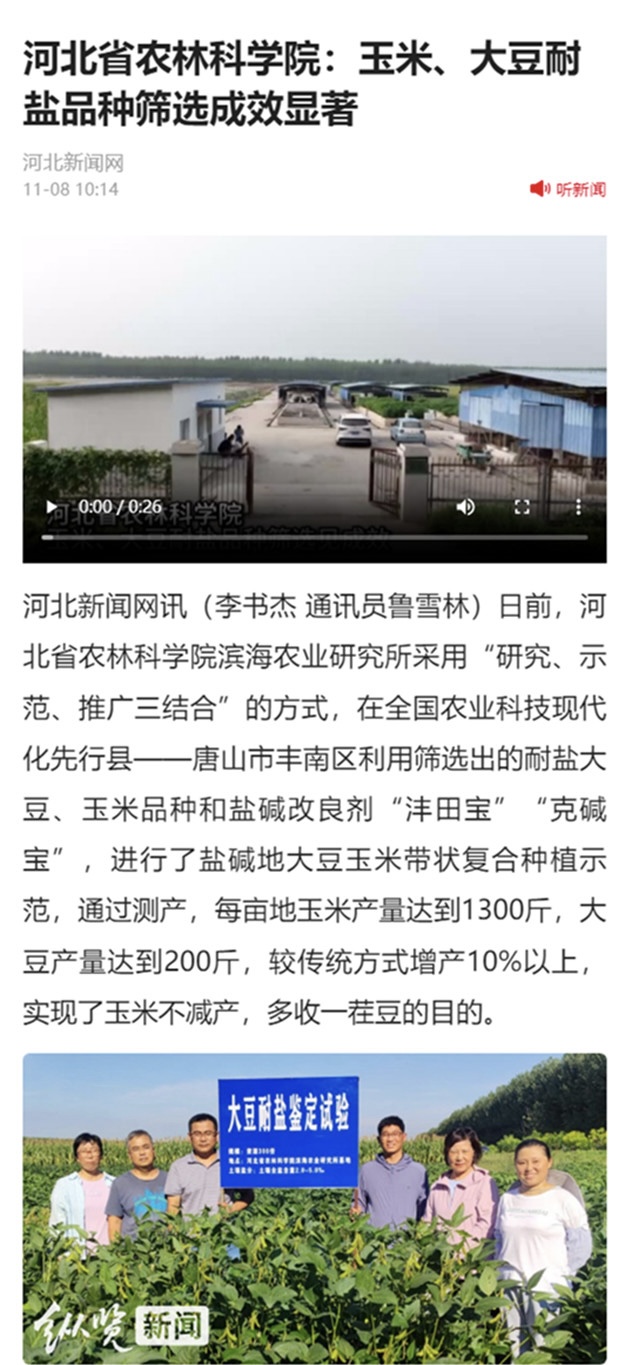recently, the institute of coastal agriculture of haafs adopted a "research, demonstration, and promotion" approach to conduct a demonstration of salt tolerant soybeans and corn varieties, as well as salt alkali improvers "fengtianbao" and "kejianbao", in fengnan district, a leading county in the modernization of agricultural science and technology in china. through production testing, the corn yield per acre reached 1300 kilograms, the yield of soybeans has reached 200 kilograms, increasing by more than 10% compared to traditional methods, achieving the goal of not reducing corn production and harvesting an additional crop of beans.
in 2022, the no. 1 central document put forward the requirements of "classified transformation of saline alkali land, promoting the transformation from mainly controlling saline alkali land adaptive crops to more breeding salt tolerant plants to adapt to saline alkali land" and "carrying out demonstration of planting soybeans in saline alkali land". the intercropping model utilizes the complementary advantages of different species in terms of spatial distribution and nutrient requirements, especially the intercropping of gramineous crops and leguminous crops, which has significant advantages. therefore, the development and utilization of moderate saline alkali land in coastal areas for soybean and corn belt compound planting is an important supplement to expanding soybean production capacity in china, and is of great significance for ensuring food security in china.
the total area of saline alkali land in hebei province is over 10 million acres, which carries the ecological and economic functions of efficient utilization of saline alkali agricultural resources and food security. however, facing practical problems such as a shortage of salt tolerant crop varieties, high salt content, low permeability, and barren saline alkali land, such as "difficult to maintain seedlings and difficult to increase yield due to fertilizer deficiency", achieving the goal of "fully utilizing saline alkali land" through crop cultivation in coastal saline alkali land faces serious challenges. the institute of coastal agriculture of hebei academy of agriculture and forestry sciences has broken the traditional thinking of managing plants that adapt to saline alkali land, and achieved a transformation in the concept of selecting salt tolerant plants that adapt to saline alkali land. by utilizing the advantages of coastal saline alkali areas and crop salt tolerance identification technology, it has carried out the identification and screening of salt tolerant varieties of drought crops such as soybeans, corn, wheat, sorghum, and other drought resistant crops, as well as the research and demonstration of salt alkali land cultivation technology.

(source from www.hebnky.com)